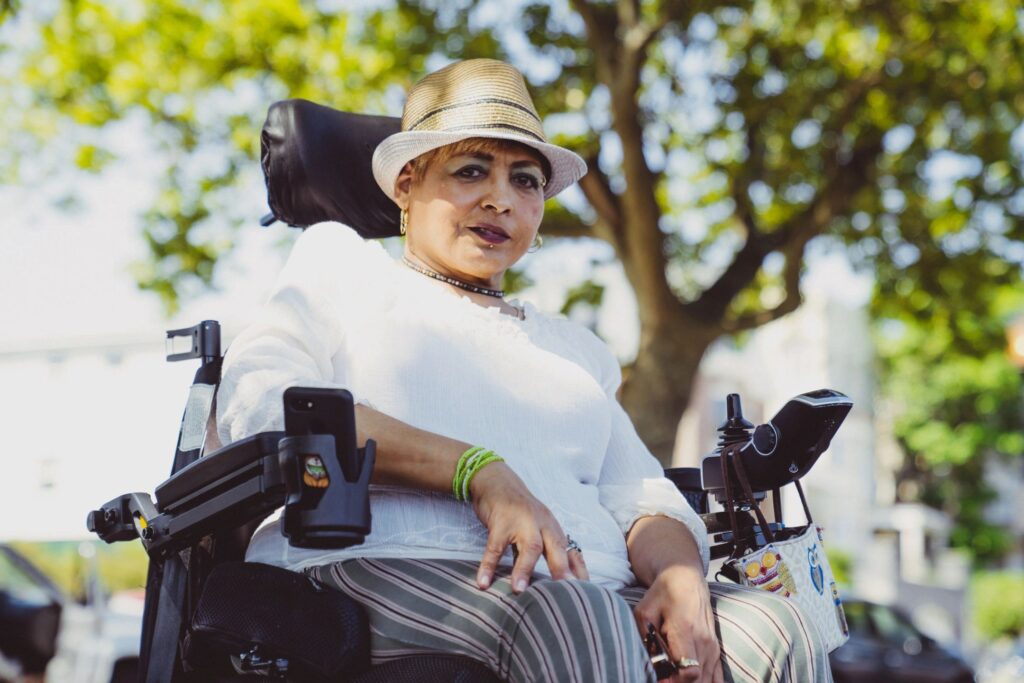Empowering Independence: Home Healthcare for Individuals with Disabilities - 1

Empowering Independence:
Home Healthcare for Individuals with Disabilities - 1
Empowering Independence: Home Healthcare for Individuals with Disabilities - 1
Living with a disability can present numerous challenges, but with the right support and care, individuals can lead fulfilling lives. Home healthcare services have become increasingly popular in recent years, offering individuals with disabilities the opportunity to receive personalized care and assistance in the comfort of their own homes. This blog post explores the significance of home healthcare for individuals with disabilities and how it empowers them to achieve greater independence, improved quality of life, and enhanced overall well-being.
Get Better With Algebra Healthcare

Visit our Social Media & Read Blogs
Your Good Health Is Just A Call Away
+971 501 317 063 / 800 200 100

Understanding Home Healthcare for Individuals with Disabilities
Home healthcare refers to a range of medical, therapeutic, and supportive services provided to individuals in their homes. For people with disabilities, these services are tailored to their unique needs and focus on enhancing their independence and functional abilities. Unlike institutionalized care, home healthcare allows individuals to remain in familiar surroundings while receiving personalized care.
Personalized Care
Home healthcare plans are tailored to meet the specific needs and goals of each individual. Whether it’s assistance with daily living activities, physical therapy, speech therapy, or nursing care, the services are designed to address the unique challenges faced by people with disabilities. This personalized approach ensures that individuals receive the most effective care for their conditions.
Improved Quality of Life
By providing necessary medical and support services, home healthcare aims to enhance the overall quality of life for individuals with disabilities. From managing chronic conditions to offering emotional support, the comprehensive care offered at home contributes to a better and more fulfilling life experience.
Reduced Hospitalizations
Home healthcare has been proven to reduce the frequency of hospitalizations for individuals with disabilities. By addressing health issues promptly and monitoring conditions closely, home healthcare professionals can often prevent complications that might otherwise lead to hospital admissions.
Cost-Effectiveness
Compared to long-term institutional care, home healthcare is often a more cost-effective option. It reduces the financial burden on families while still providing high-quality care tailored to the individual’s needs.
Types of Home Healthcare Services
Skilled Nursing Care
Skilled nursing care is a vital aspect of home healthcare, especially for individuals with complex medical needs. Registered nurses and licensed practical nurses provide various medical services, such as wound care, medication management, and monitoring vital signs.
Physical Therapy
Physical therapy helps individuals with disabilities improve their mobility, strength, and balance. Physical therapists develop personalized exercise programs to enhance functional abilities and reduce the risk of injury.
Occupational Therapy
Occupational therapy focuses on helping individuals develop or regain the skills necessary for daily living and work-related activities. Occupational therapists assess the home environment and provide adaptive equipment to promote independence.
Speech Therapy
For those with speech and communication difficulties, speech therapists work to improve language skills, swallowing function, and overall communication abilities.
Personal Care Assistance
Personal care aides assist with activities of daily living, such as bathing, dressing, eating, and toileting. These caregivers ensure the comfort and safety of individuals with disabilities in their daily routines.
Medical Equipment and Supplies
Home healthcare may involve the provision of medical equipment and supplies, such as wheelchairs, assistive devices, and oxygen therapy equipment, to enhance the individual’s comfort and mobility.
Challenges and Solutions
Accessibility and Home Modifications
One of the challenges faced by individuals with disabilities receiving home healthcare is the need for accessible living spaces. Home modifications, such as ramps, grab bars, and widened doorways, may be required to accommodate mobility aids. Government programs and charitable organizations often offer assistance in funding these modifications.
Caregiver Burnout
Family members who take on the role of caregivers may face burnout due to the demanding nature of providing constant care. Respite care services can provide temporary relief to caregivers, allowing them to recharge and maintain their own well-being.
Limited Insurance Coverage
In some cases, home healthcare services may not be fully covered by insurance, leaving individuals and families with financial burdens. Advocacy for improved insurance coverage and awareness of available resources can help address this issue.
The Future of Home Healthcare
As society becomes more inclusive and progressive, the future of home healthcare for individuals with disabilities looks promising. Advancements in technology, such as telemedicine and remote monitoring devices, will further improve the accessibility and efficiency of care delivery. Moreover, continued advocacy and awareness will drive policy changes to ensure better support and funding for home healthcare services.
The Advantages of Home Healthcare
Personalized Care Plans
Home healthcare services are highly individualized, taking into account the unique needs and preferences of each patient. The care plans are designed to address the specific challenges faced by individuals with disabilities, focusing on improving their quality of life and promoting independence.
Promoting Independence
For individuals with disabilities, maintaining independence is often a significant concern. Home healthcare provides the necessary support and tools to foster self-reliance, helping them perform daily activities and tasks with greater ease.
Familiar and Comfortable Environment
Being in the familiar surroundings of their home can have a profound positive impact on a person’s mental and emotional well-being. Home healthcare eliminates the stress and anxiety often associated with hospitals or unfamiliar environments, contributing to a more relaxed and healing atmosphere.
Lower Risk of Infections
Home healthcare reduces the exposure of individuals with disabilities to contagious infections, which is especially crucial for those with compromised immune systems. The risk of acquiring hospital-acquired infections is minimized, contributing to better overall health outcomes.
Home healthcare plays a crucial role in empowering individuals with disabilities to live fulfilling lives while maintaining their independence and dignity:
By offering personalized care and support in the comfort of their own homes, these services contribute to improved quality of life, reduced hospitalizations, and cost-effective solutions for both individuals and their families. As we continue to embrace the principles of inclusivity and accessibility, the future of home healthcare holds the promise of even greater advancements and opportunities for those with disabilities. Let us stand together to promote and advocate for a more inclusive and caring society.
